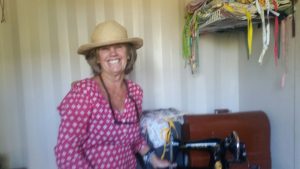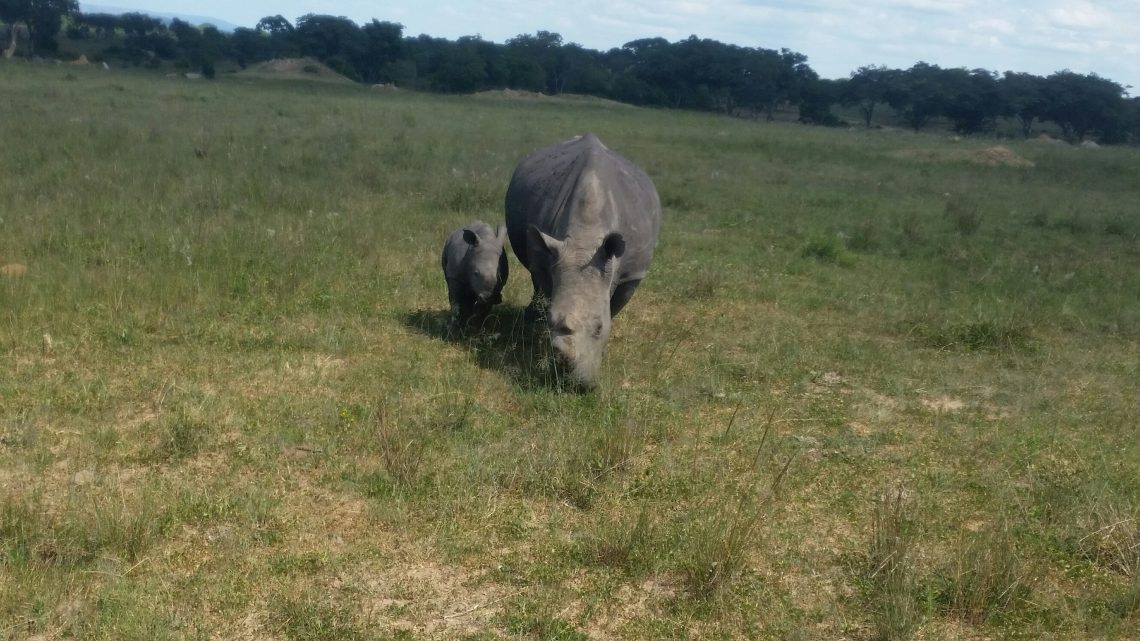By Byron Mutingwende
The Imire Rhino and Wildlife Conservation is one of its kind because the venture is located in the farming areas of Wedza just over 100km from Harare. Home to the big five game animals except the leopard, one cannot just but wonder at the success story of this enterprise.
Arriving at the conservancy, the crew was greeted by friendly tour guides and the management who made everyone feel at home with their smiles and warm reception as they served some tea and coffee for the guests. In no time, the itinerary was laid out and everyone jumped onto the open safari off-road vehicles suitable for game viewing.
The laugh of hyenas and the roar of a lion could be heard from a distance as Morris Mkala, one of the tour guides led the way into the wilderness.
“Since we are located within a farming community, the lion and the hyenas are fenced because they are predators that kill instinctively. We have many animals like the elephants, buffaloes, water-bucks, kudus, antelopes and most importantly we run a rhino-breeding programme. The interesting part is the programme is very successful since we started off with just seven orphaned black rhinos whose population shot up to 27 before some poachers invaded the conservancy and killed most of them,” Mkala said.
The tour guide explained that rhinos normally take between four to five years to go back to the cycle after giving birth. However, at five months of age, the Imire workers take away the rhino babies from their mothers and cut the time that the rhinos take to go back to cycle just to two years.
In 2007, Imire had 15 rhinos of which nine were taken back into the wild. Marauding and indiscriminate poachers killed four of the rhinos for their horns and results of 20 years of hard working were wiped away in 20 minutes.
There is an amazing story of controlling ticks on the wildlife at Imire. They allow cattle to graze freely together with the animals. Ticks usually move from buffaloes to cattle and when that happens, the cattle are dipped, eliminating the ticks from the pastures in the process.
Reilly Travers, the Imire Conservancy Manager described the conservation programme as a little pearl of Zimbabwe that has been in operation since the 1970s.
“Imire is an incredible asset to Zimbabwe. We have both local and international tourists but our main clients are Zimbabweans. It’s important to link Imire to the Eastern Highlands. It has been an incredible journey of working hard to protect the rhino that is one of the species on the verge of extinction. We have been successful on that venture with very little capital but made it possible through our resolute commitment to conserve the rhino,” Travers said.
The Imire management is ploughing back to the community in many ways. Judy Travers voiced concern over the high maternal mortality rate in Wedza that stands at 7 percent. Imire donated a maternal waiting home, a clinic and a house for community-based nurses in the area because locals used to walk long distances to the nearest health services centre.

After realising the efforts of Judy in promoting healthy livelihoods among locals in Wedza where Imire is located, Susan Janetti, the Director of Zimbabwe Gecko Society (an organization that aims to break the cycle of poverty in Zimbabwe by creating long-term, sustainable community health) an assortment of medical equipment and materials to train women and the young people of Wedza with vocational skills. These included syringes, bandages, gloves and many other items that make sound health delivery possible. The equipment will be distributed to local clinics and hospitals.
Imire has also built a library and computer centre for the community in memory of the late animal handler Tafadzwa Gosho who was killed by a black rhino. The locals use the facilities to research on various issues from the books in the library and access Internet for free, courtesy of Imire.
At the vocational training centre at Imire, women’s groups are empowered with skills like sewing and knitting. There is also a carpentry shop targeting the youths who make furniture for sale. In addition, young girls and women are helped with subsidised and cheap, recyclable sanitary pads to keep them in school during menstrual periods.
